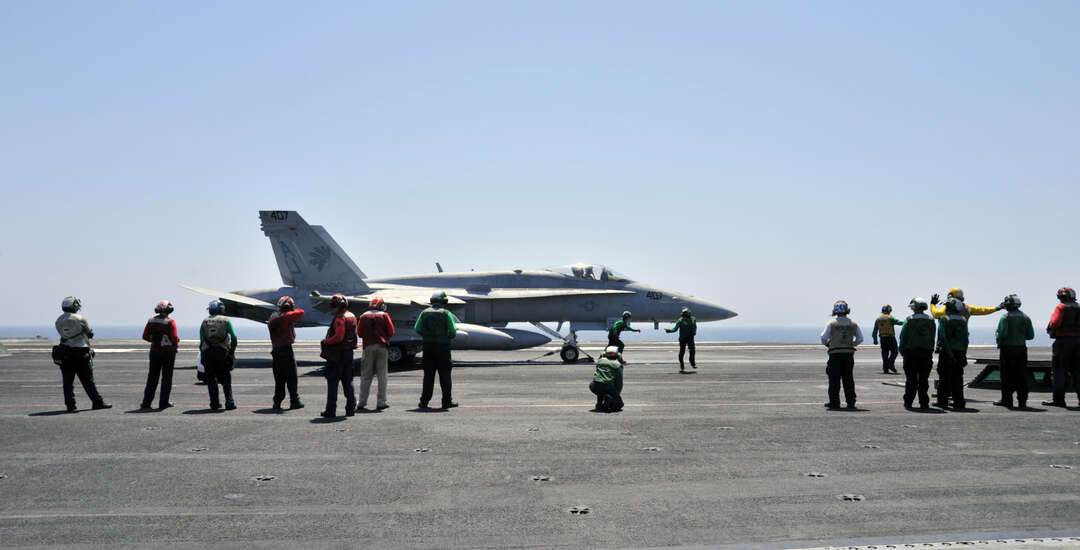-
US bombings in Iraq and Syria targeted a key Iranian unit

The US bombings of Kataib Hezbollah bases in Iraq and Syria have been criticized by Iran, Russia, and Iraq itself, which has said it would review its relationship with Washington.
Sunday’s bombing targeted Kataib Hezbollah bases including weapons arsenals and command and control locations, killing 27 people, according to local media reports.
The Pentagon said it was in response to repeated attacks by Kataib Hezbollah on US coalition forces based in Iraq, the latest of which was on Friday, when Kataib Hezbollah fired 30 rockets at a US base in the Iraqi city of Kirkuk, killing an American contractor.
Iraq’s National Security Council said the US bombing had “pushed Iraq to review its relationship” with Washington to “preserve the country’s sovereignty and security and protect the souls of its sons”.
“The Iraqi government condemns this act and considers it a violation of Iraqi sovereignty,” the council said in a statement after meeting on Monday.
However, the situation on the ground in Iraq is complex. Since the collapse of ISIS’s so-called caliphate in 2017, the country has been over-run with militia groups backed by Iran, led by people who are designated as terrorists by Western powers.
Kataib Hezbollah is commanded by Abu Mahdi al-Mohandes, who is also the commander of the Popular Mobilization Forces in Iraq. He is designated as a terrorist by the United States and in this two-year-old video, is shown pledging allegiance to General Qassem Soleimani, the commander of the Islamic Revolutionary Guard Corps - Quds Force.
the Supreme Leader is not only Iranian, he belongs to everyone,” comes the reply.
He is then asked, apart from the Supreme Leader, which Iranian does he like, and he replies: “Qassem Soleimani.”
Soleimani is regarded as Iran’s principal military strategist and is designated as a terrorist by the United States, the European Union, and Switzerland.
Asked the reason for his liking Soleimani, al-Mohandes says, smiling: “I don’t know. There are a lot of reasons.”
Asked further to explain his relationship with Soleimani, al-Mohandes replies: “It’s the relationship of a soldier.”
When the reporter expresses his surprise, al-Mohandes affirms what he said and says: “I’m proud of it.”
Al-Mohandes is also a senior commander of the Popular Mobilization Forces, which mostly consists of Iranian-backed Shia militias that were integrated into Iraq’s armed forces. The Popular Mobilization Forces bolstered Iraq’s security forces during their battle to retake a third of the country from ISIS insurgents and were later folded into Iraq’s official security structure.
Iran’s Islamic Revolutionary Guard Corps trains some of the Iraqi militias, including Kataib Hezbollah.
With Al Arabiya and agencies
You May Also Like
Popular Posts
Caricature
BENEFIT Sponsors BuildHer...
- April 23, 2025
BENEFIT, the Kingdom’s innovator and leading company in Fintech and electronic financial transactions service, has sponsored the BuildHer CityHack 2025 Hackathon, a two-day event spearheaded by the College of Engineering and Technology at the Royal University for Women (RUW).
Aimed at secondary school students, the event brought together a distinguished group of academic professionals and technology experts to mentor and inspire young participants.
More than 100 high school students from across the Kingdom of Bahrain took part in the hackathon, which featured an intensive programme of training workshops and hands-on sessions. These activities were tailored to enhance participants’ critical thinking, collaborative problem-solving, and team-building capabilities, while also encouraging the development of practical and sustainable solutions to contemporary challenges using modern technological tools.
BENEFIT’s Chief Executive Mr. Abdulwahed AlJanahi, commented: “Our support for this educational hackathon reflects our long-term strategic vision to nurture the talents of emerging national youth and empower the next generation of accomplished female leaders in technology. By fostering creativity and innovation, we aim to contribute meaningfully to Bahrain’s comprehensive development goals and align with the aspirations outlined in the Kingdom’s Vision 2030—an ambition in which BENEFIT plays a central role.”
Professor Riyadh Yousif Hamzah, President of the Royal University for Women, commented: “This initiative reflects our commitment to advancing women in STEM fields. We're cultivating a generation of creative, solution-driven female leaders who will drive national development. Our partnership with BENEFIT exemplifies the powerful synergy between academia and private sector in supporting educational innovation.”
Hanan Abdulla Hasan, Senior Manager, PR & Communication at BENEFIT, said: “We are honoured to collaborate with RUW in supporting this remarkable technology-focused event. It highlights our commitment to social responsibility, and our ongoing efforts to enhance the digital and innovation capabilities of young Bahraini women and foster their ability to harness technological tools in the service of a smarter, more sustainable future.”
For his part, Dr. Humam ElAgha, Acting Dean of the College of Engineering and Technology at the University, said: “BuildHer CityHack 2025 embodies our hands-on approach to education. By tackling real-world problems through creative thinking and sustainable solutions, we're preparing women to thrive in the knowledge economy – a cornerstone of the University's vision.”
opinion
Report
ads
Newsletter
Subscribe to our mailing list to get the new updates!






















